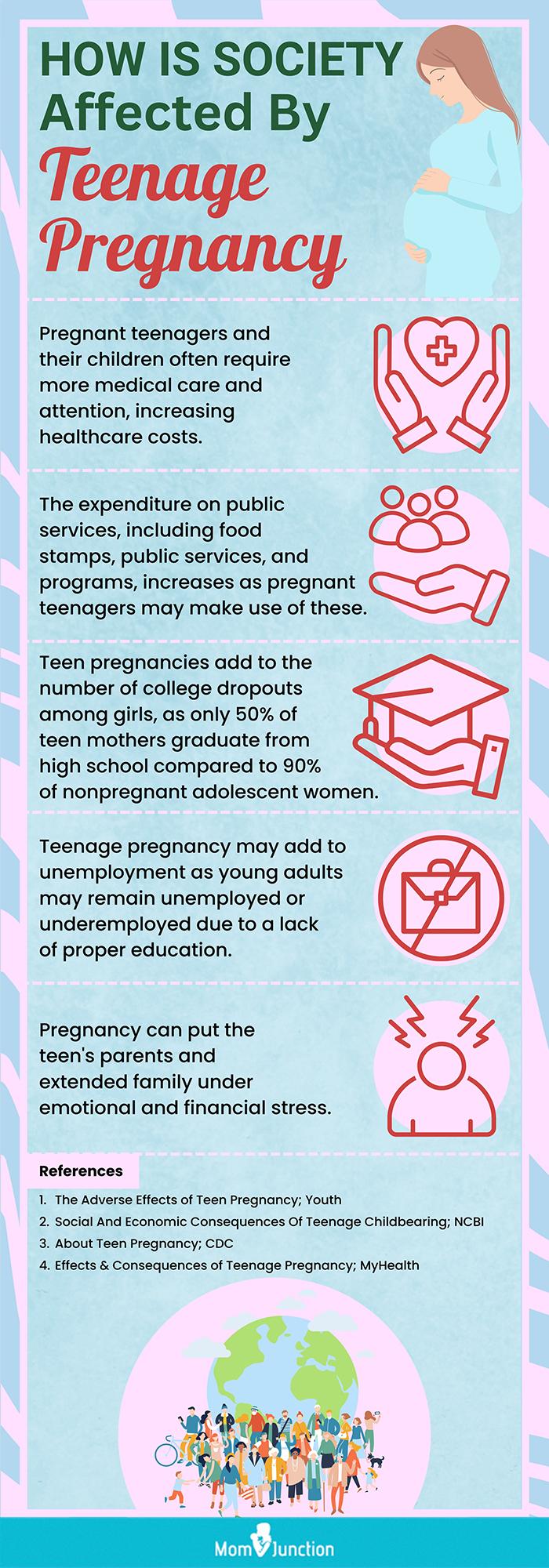
The Profound Effects of Teen Pregnancy: A Comprehensive Analysis
Teen pregnancy, defined as pregnancy occurring in individuals under the age of 20, poses significant challenges to both the adolescent mother and the child. The multifaceted consequences of teen pregnancy extend beyond immediate physical and emotional well-being, impacting educational attainment, economic stability, and overall life trajectory.
Physical and Emotional Health Risks
Teen mothers face a higher risk of adverse pregnancy outcomes, including premature birth, low birth weight, and infant mortality. They are also more likely to experience complications during labor and delivery, such as preeclampsia and postpartum hemorrhage. Additionally, teen mothers are at an increased risk for sexually transmitted infections (STIs) and other reproductive health issues.
The emotional toll of teen pregnancy can be profound. Adolescent mothers often struggle with feelings of isolation, shame, and anxiety. They may experience difficulty bonding with their child and may be more likely to engage in risky behaviors, such as substance abuse and self-harm.
Educational and Economic Challenges
Teen pregnancy significantly disrupts educational attainment. Many teen mothers drop out of school to care for their child, limiting their future earning potential. Those who do remain in school may face academic challenges due to the demands of parenting and the stigma associated with being a teen mother.
The economic consequences of teen pregnancy are also substantial. Teen mothers are more likely to live in poverty and rely on government assistance. They may face challenges finding employment and maintaining stable housing, which can perpetuate a cycle of poverty for both themselves and their children.
Social and Psychological Impacts
Teen pregnancy can have a profound impact on the social and psychological well-being of both the mother and the child. Teen mothers are more likely to experience social isolation and rejection from peers and family members. They may also face discrimination in housing, employment, and other areas.
Children born to teen mothers are at an increased risk for developmental delays, behavioral problems, and academic difficulties. They are also more likely to experience poverty and social disadvantage throughout their lives.
Contributing Factors and Prevention Strategies
The causes of teen pregnancy are complex and multifaceted. Factors such as poverty, lack of education, and limited access to reproductive health services contribute to the high rates of teen pregnancy in many communities.
Prevention strategies must address these underlying factors. Comprehensive sex education programs that provide accurate information about contraception and safe sex practices are essential. Additionally, programs that support youth development, provide mentorship opportunities, and promote healthy decision-making can help reduce the risk of teen pregnancy.
Long-Term Consequences
The effects of teen pregnancy can extend far beyond adolescence. Teen mothers are more likely to experience chronic health conditions, such as obesity, heart disease, and diabetes. They are also at an increased risk for mental health issues, including depression and anxiety.
Children born to teen mothers are more likely to face health, educational, and social challenges throughout their lives. They are more likely to experience poverty, incarceration, and unemployment. They are also at an increased risk for chronic health conditions and mental health issues.
Policy Implications
Addressing the issue of teen pregnancy requires a comprehensive approach that involves both prevention and support services. Policies that promote access to comprehensive sex education, provide support for teen mothers and their children, and address the underlying factors that contribute to teen pregnancy are essential.
-
Comprehensive Sex Education: All adolescents should have access to accurate and age-appropriate sex education that includes information about contraception, safe sex practices, and the risks and consequences of teen pregnancy.
-
Support for Teen Mothers: Teen mothers need access to a range of support services, including prenatal care, parenting education, and financial assistance. These services can help teen mothers improve their health outcomes, complete their education, and provide a stable environment for their children.
-
Addressing Underlying Factors: Policies that address poverty, lack of education, and limited access to reproductive health services can help reduce the risk of teen pregnancy. This includes programs that provide job training, housing assistance, and other support services to families in need.
Conclusion
Teen pregnancy is a complex issue with far-reaching consequences for both the adolescent mother and the child. It is essential to address the underlying factors that contribute to teen pregnancy and to provide comprehensive support services to teen mothers and their children. By investing in prevention and support programs, we can help reduce the incidence of teen pregnancy and improve the lives of those affected by it.